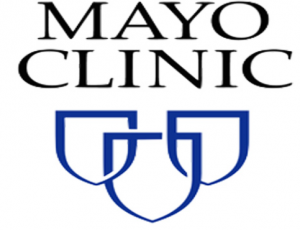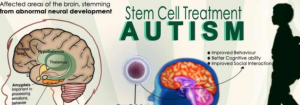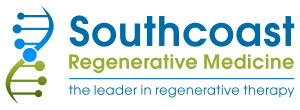Why did my Doctor tell me NOT to have CellularTreatments?
You have arthritis and have been told that you need a knee replacement. Unfortunately, your friend had knee replacement and is miserable. He continues to have pain and has been unable to get back to sports and even to simply return to normal activities. In addition, you have done your research and you see that medical papers quote as much as a 1/3 to 1/4 chance that patients who have knee arthroplasty will have pain and limited function after knee replacement. You don’t want to go through that!
Despite fearing knee replacement, you need to do something. Your knee hurts and therapy, injections, and the high doses of motrin you take daily (which your doctor told you would ruin your kidneys and might cause a G.I. bleed) has not worked.
After looking through your options you come to the conclusion that cellular therapy might be your answer. You see how this could help with the pain and you’ve been told it may even help heal your tissues. Prior to having the procedure you decide to run it by your physician and are surprised to hear that he tells you NOT to go through with the procedure. “Don’t do it” he says. “There are no studies to prove this can work.” “We need more research and many of these clinics are simply out for the money” your doctor stresses.
Why would he tell you exactly the opposite of what the regenerative medicine specialist told you?
You have read how many major athletes have tried stem cell treatments and attest to the success. Why is your physician opposed to this treatment?
Who should you listen to?
The Truth about Cellular Therapy
Here is the truth about using Cellular treatments for Orthopedic conditions.
Regenerative Medicine is the future of medicine.
Regenerative Medicine will change how we treat diseases and will affect virtually every medical specialty. It uses undifferentiated cells (cells that have the ability to grow into almost any cell type) to treat tissues that have been injured or lost to injury or disease. It allows our bodies to heal through normal mechanisms and we are only within the last two decades really beginning to understand the incredible potential of this breakthrough science. I believe the day will come when we no longer do organ transplants, but instead grow healthy new organs using this therapy. Currently there are many trials and research ongoing including:
- Stanford University conducting a trial on the safety and efficacy of stem cell use in spinal cord injury
- UCSD is conducting a trial on the use of stem cells to treat diabetes
- University of Minnesota is currently studying the use of stem cells to replace damaged heart muscle
- Stanford Univesity is studying the use of stem cells in eye disorders
and there are many more of these studies around the globe. Stem Cell research in other countries often includes research using embryonic cells. The advantage is that these cells are pluripotent, and can develop into any of the 200 different cell types in the human body, unlike the cells in our bone marrow or fat, which can only differentiate into certain cell types.
With regard to the efficacy of stem cells, here is a quote from a former FDA commissioner:
We’re at the beginning of a paradigm change in medicine with the promise of being able to facilitate regeneration of parts of the human body, where cells and tissues can be engineered to grow healthy, functional organs to replace diseased ones; new genes can be introduced into the body to combat disease; and adult stem cells can generate replacements for cells that are lost to injury or disease. This is no longer the stuff of science fiction” FDA commissioner Scott Gottlieb 2017
You can read the press release in its entirety here.
Regenerative Medicine will, in the coming decades, affect virtually every major medical specialty and almost every major medical institution has, or is developing, a regenerative medicine department. This includes:




- Mayo Clinic
- Institute for stem cell biology and regenerative medicine at Stanford University
- Harvard University stem cell institute
- The National Institute of Health
- John Hopkins
- Massashusetts General
- Cleveland Clinic Department of Cell Biology and Regenerative Medicine
- University of Pittsburgh McGowan Institute of Regenerative Medicine
The above list is abbreviated with many, many more institutions in the United States and around the world developing regenerative medicine departments. The research in regenerative medicine over the next two decades will change outcomes for a variety of diseases.
If Regenerative Medicine has such incredible potential, then why would my doctor tell me NOT to do it?

The story I have just described about the incredible potential of stem cells and other regenerative medicine therapies is balanced by another story. That story is the story of some providers (often not medical doctors) who see Regenerative Medicine as the Wild, Wild West, a poorly regulated and policed realm in which they can make large sums of money if their sales pitch is right. They see an option to capitalize on patient fears by promoting treatments for diseases such as:



- Alzheimer’s
- cancer
- COPD
- heart disease
- spinal injury
- ALS
The time will come when we can use Regenerative treatments for these diseases, but much more research is needed before we get to that point and you should stay away from any provider who tells you otherwise! The FDA this year shut down U S Stem Cell, which had been implicated in causing blindness in three patients through stem cell treatments to “cure” macular degeneration. Again, I don’t question that one day we will use regenerative medicine to cure macular degeneration. I simply don’t believe it is reasonable to suggest that time is now, nor to recruit and sell patients on such treatments.
Providers who currently promote treatment for cancer and systemic diseases using stem cells, prey on individuals with little or no knowledge in this realm, patients who are looking for any treatment. These providers sell these treatments, and contrary to FDA guidance, inject small samples of cells intravenously to treat almost any disease. The fluids they provide often don’t even contain any living cells (download and listen to the podcast BAD BATCH, episode 5). In addition to patients often not gaining from these treatments, there is documentation of many patients being harmed by such injections.
Your doctor may or may not be aware of the story recounted in the podcast Bad Batch and of the injury to patients in this instance. But more than likely he or she is aware that one of the risks of stem cell treatments is the risk that a patient may choose treatment from a provider who is poorly qualified and whose interest in patient well being is less than profound. The truth is that in South Carolina most of the stem cell providers are not physicians, but instead are non-medical providers such as chiropractors who have hired a physician (with no experience) to simply inject cells. Why hire a physician? Because by law the Chiropractor is not allowed to give injections. How do these offices know if the patient is really a good candidate for this therapy or not? …..Well, unfortunately in many instances ALL who are willing to pay are candidates! Your doctor likely knows this too.
So if Regenerative Medicine has Potential in many areas, but more research is needed
Has cellular therapy been proven effective for anything?
At Southcoast Regenerative Medicine we believe that research already has given us reason to believe that cellular treatments can be effective in spine and joint disease. It is possible that your doctor simply is not aware of the advances that have been made, nor the clinical studies that have shown some success.
Many patients come to us for knee pain secondary to arthritis. We share Mayo Clinic’s belief that regenerative treatments can help with arthritis pain in the knee, and in other joints, and we use the same techniques using autologous treatments. We also believe that when compared to the poor outcomes associated with the current standard of care:
- arthroscopic surgeries (no better than sham surgery in degenerative knees)
- nsaids (G.I. bleeds, kidney issues, possible heart disease)
- hyaluronic acid and steroids (into the joint steroids may destroy cartilage faster)
- cartilage microfracture (which grows fibrocartilage rather than hyaline cartilage…..different properties)
- Joint replacement (high risk of chronic pain)
that these treatments are often a very reasonable option. Many physicians are simply unaware of the advances in this realm and are likewise unfamiliar with the poor outcomes of current, widely accepted approaches to joint arthritis. Most patients are aware that high dose Motrin and other non-steroidal medications rarely solve joint pain and can be dangerous. Physical Therapy fails to give pain relief and joint injections only rarely work. Studies have shown that arthroscopic surgeries in patients with degenerative joint issues, are typically as ineffective as sham surgery. The British Medical Journal reported that one out of three patients has chronic pain after total knee arthroplasty and one such case and the seriousness of this issue was described in an article last year in the Washington Post. Unfortunately, once a patient has had knee replacement, there is little that can be done to relieve such pain. We at Southcoast Regenerative Medicine have treated these patients for years, and have searched for newer, better, treatment options. The same is true for our approach to patients who fail spinal fusion. NBC news recently did a story on the poor outcomes of spine surgery, citing a study in the journal Spine that showed such surgery may be associated with more pain. The study reviewed 1450 patients who had spine surgery, revealing only 26% returned to work after two years. Again, we have treated these failed spine patients for years, are familiar with the miserable outcomes associated with some of these surgeries and the complete failure of medicine to offer a satisfactory alternative. We think Cellular treatments may be the start to better alternatives.
Research evidence suggesting cellular therapies may work
Many major institutions around the United States, and around the world, offer autologous stem cell for the treatment of arthritis pain and are getting good results. There is significant laboratory research to explain why and how autologous stem cell treatments may work.
The primary issue in arthritis is loss of cartilage. Physicians have believed for many years that once cartilage was gone, it was gone forever, however we now know that is not true.
Dr. Freddie Fu is an orthopedic surgeon at the University of Pittsburgh. He runs an Orthopedic department that is deep into research involving the use of cells in musculoskeletal disease. They have shown that stem cells in the lab can grow new cartilage. Dr. Arnold Caplan Phd, at Case Western, who is a long time stem cell researcher known around the world, has shown similar results. These eminent professionals have shown that under laboratory conditions mesenchymal stem cells have the power to
- self replicate
- stop inflammation
- grow cartilage, bone, muscles, ligaments and other tissues
Recognizing that cells can grow cartilage in the lab, then leads us to ask if we can use cells in clinical settings to grow cartilage in patients with arthritis. While the answer to this question is still being debated, orthopedic surgeon Dr. Jason Dragoo at Stanford, has presented evidence of such growth at TOBI conference 2018.
Dr. Fu and his research team in Pittsburgh have also examined the quality of cartilage grown under lab conditions and have shown that the cartilage growth is not scar tissue, but healthy, mature, normal cartilage, with tensile properties consistent with healthy tissue. The implications of the above findings in the treatment of arthritis are overwhelming.
Despite the above, those in medicine realize that sometimes lab studies don’t convey to clinical (patient) use as well as one might think. However, we at Southcoast think that current research has shown promise for clinical use.
In April 2019 an article published in Stem Cell Translational Medicine recounts significant improvement in patient’s pain, function and quality of life, using autologous stem cells. The full article, “Bone Marrow Mesenchymal Stromal Cells in Patients with Osteoarthritis Results in Overall Improvement in Pain and Symptoms and Reduces Synovial Inflammation,” can be accessed here. The main conclusion published was that “autologous bone marrow stem cells (BM‐MSCs) are safe at all doses tested and likely improve various dimensions of knee‐specific joint function and quality of life”. The authors also note “early clinical data have also demonstrated improvements in cartilage volume and quality.” Perhaps this data will be the beginning of clear evidence of cartilage growth.
Another stunning article exhibiting the remarkable clinical success of cell treatments for arthritis was published by Orthopedic surgeon Dr. Phillipe Hernigou, from Val de Mame University in Paris In January of 2018. Dr. Hernigou’s work, STEM CELL vs. TOTAL KNEE ARTHROPLASTY FOR OSTEOARTHRITIS details the use of stem cells in patients with osteonecrosis of the knee. Osteonecrosis is essentially a more rapid progression of arthritis which destroys the knee joint faster and typically in younger patients. Dr. Hernigou studied 30 patients who had such arthritis in both knees. The study was a prospective, randomized, controlled clinical trial in which each patient agreed to have stem cell treatment on one knee and total knee surgery on the other knee. The patients were followed for between 8 and 16 years, (average of 12 years). The results did not reveal stem cell treatments to be as good as total knee arthroplasty, but instead better with 21 of 30 patients (70%) preferring the stem cell knee as the better treatment option.
One of the interesting things about this research is that quite often it is orthopedic surgeons who are publishing this data. Despite this, many in the orthopedic community either remain unaware of these results, are unaware of the terribly poor outcomes with traditional orthopedic approaches, or simply don’t believe it is clinically useful for some other reason. Sometimes these surgeons will dismiss the use of cell therapy now, because “we need more research” or because “no randomized, controlled clinical trials have been done” or because we cannot be sure patient improvement is not from “the placebo effect.”
While there is much more research to do, we disagree.
Please take a moment to watch this Mayo Clinic video with Dr. Shane Shapiro in which he describes a randomized and placebo controlled, clinical trial at Mayo on the use of stem cells for the treatment of knee arthritis. These cells come from bone marrow, are re-injected on the same day, and the procedure uses your own cells, as do we at Southcoast.
If my doctor has told me NOT to have cell therapy treatments who should I believe?
Right now the world of stem cell treatments is really the wild, wild west. There are many, many providers and most may not have your best interest in mind. If your primary care physician is telling you to avoid cell therapy, the odds are that he or she is trying to protect you from some bad actors in the regenerative medicine field.
If your orthopedic surgeon surgeon has told you to avoid stem cell treatments, he or she may simply be unaware of the poor outcomes with knee replacement or the they may simply not be aware of all the advances in this new science, many of which are being published by Orthopedic Surgeons. It is interesting to note that in a 2017 article published in the journal Stem Cell International entitled The Holy Grail of Orthopedic Surgery, Mesenchymal Stem Cells” the authors speculate that “the use of MSCs in orthopedics may transition the practice in the field (Orthopedic Surgery) from predominately surgical replacement and reconstruction to bioregeneration and prevention.” They also comment in the conclusions section that “it is important to recognize that, instead of being a distant goal in the future, the use of MSC’s (mesenchymal stem cells) already comprises a realistic option for treating several musculoskeletal diseases.”
At Southcoast Medical we believe that it is becoming more clear daily that cell therapy can treat arthritis. This applies to both spine and joint disease. We recognize that research and clinical trials are ongoing that will give us further insight into these therapies.
In this article we have recited how the former director of the FDA believes that “stem cells can generate replacements for cells that are lost to injury or disease. This is no longer the stuff of science fiction”. We have shown that most major medical institutions have stem cell departments and that Freddie Fu and Arnold Caplan have used stem cells to grow cartilage. We have described clinical studies by Phillipe Hernigou and others that show patients prefer stem cell treatment outcomes to surgery and we have recounted the poor outcomes with traditional treatments like arthroscopy and knee replacement where many patients are left in pain. We have no doubt that cellular therapy is a viable option for joint and spine pain, but the best chance is when it is done properly. That is why we are part of the Bluetail Medical Network using data from over 50,000 such autologous procedures.
If you choose to seek cellular therapy please seek out a qualified professional who is:
- a licensed physician
- has experience treating joint and spine pain and will evaluate you and review your imaging studies prior to recommending cell therapy or any other treatment
- has experience, access to data on the best type of treatments available, and an association with an extensive group of like minded physicians with whom he can discuss your care
- is capable using image guidance for all procedure
- will have long term follow up with you
- will commit to using only YOUR CELLS, to give you the best chance of success at the least risk
Come see us if you have questions or contact us for more information.

843 990 8390







